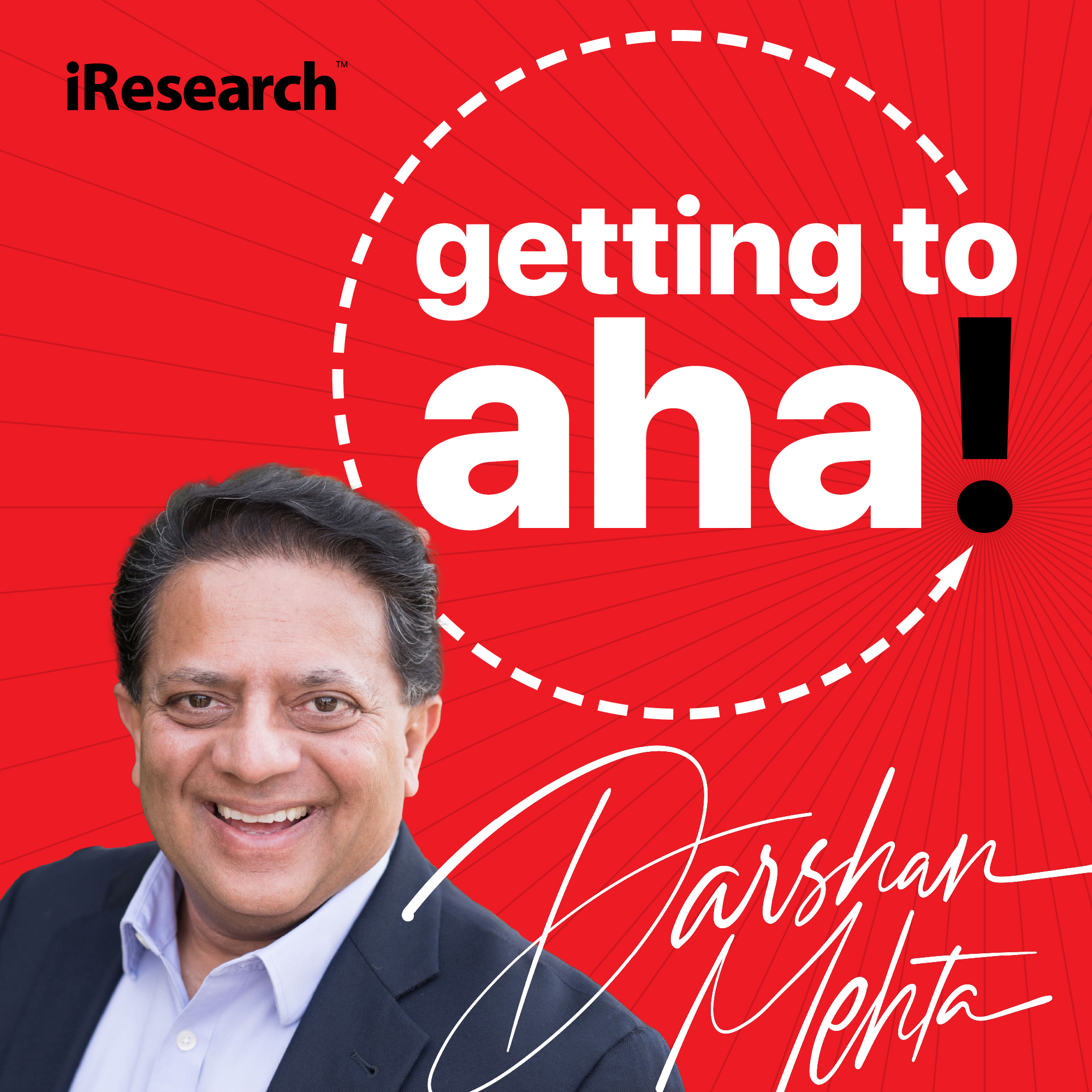Emotions & Consumer Behavior with Laura Beavin-Yates, Senior Vice President of Customer Success at Immersion
August 5, 2022

In this episode of Getting to Aha!, Darshan Mehta is joined by Laura Beavin-Yates, Senior Vice President of Customer Success at Immersion. They talk about Laura’s aha! and pivotal moments in studying emotions and behavior in relation to neuroscience. She speaks about the process of neurological functioning by exploring observable behavior and measuring people's unconscious reactions to an experience in a specific moment. She explores how the brain connects with an experience, variation in cardiac rhythm, and how it affects behavior.
In this episode of Getting to Aha!, Darshan Mehta is joined by Laura Beavin-Yates, Senior Vice President of Customer Success at Immersion. They talk about Laura’s aha! and pivotal moments in studying emotions and behavior in relation to neuroscience. She speaks about the process of neurological functioning by exploring observable behavior and measuring people's unconscious reactions to an experience in a specific moment. She explores how the brain connects with an experience, variation in cardiac rhythm, and how it affects behavior.
She also talks about how individual demographics can contribute to our life experiences. Laura touches on how this area of research helps in neuromarketing and brand marketing and how it allows insights leaders to create content that emotionally captivates consumers and drives action.
Laura Beavin-Yates is a neuromarketing consultant and the Senior Vice President of Customer Success at Immersion, a neuroscience software startup making neuro-insights available to companies. As a startup leader and insights expert, Laura measures what captivates consumers emotionally and uses that information to predict future behaviors. She graduated from Claremont Graduate University with a Ph.D. in Cognitive Psychology. Laura is also a professor with expertise in research.
KEY TAKEAWAYS
👉 You can understand neurological functioning by exploring observable behavior, tangible moments and building theories that can either be supported or debunked
👉 “One of the challenges with asking people how they feel about something is that it's difficult inherently as a human to report how we're really feeling, especially if we're asked how we feel about something that happened in the past”
👉 Neuroscience methodologies aim to measure people's unconscious reactions to an experience at the moment that people have them, as opposed to asking after the fact
👉 Neuroscientific researchers view a conscious response as something that we are asked and something that is happening that requires reflection
👉 “...When you ask somebody to become consciously aware of their feelings, they start putting mental effort toward that and less mental effort on actually consuming the experience”
👉 “A lot of what we do and how we interact with the world occurs below our actual awareness”
👉 At Immersion, we look at the extent to which the brain is connecting with an experience and define that as emotional resonance
👉 “Ultimately, emotions are a subjective thing that we are assigning to our experiences later”
👉 Your emotions are involved in the process of your brain getting value and coding something as important
👉” …If people release those hormones (dopamine or oxytocin), they're more likely to actually donate some of their hard-earned money toward an organization that produced that video
👉 With the release of dopamine or oxytocin, we can predict whether or not someone is likely to do something
👉 After 12 years of research, researchers found that the one predictor of oxytocin release and future behavior and actions is variation in cardiac rhythm
👉 One of the most significant benefits of neuro-based insights is that you get more unbiased answers
👉 Higher immersion yields a higher likelihood of engaging in some behavior later, like changes in market behavior and consumer behavior
👉 Neuroscience aims to identify things that are going to relate to future behavior, or are more likely to be unbiased answers that will yield better outcomes for businesses
👉 “Our demographics can contribute to our life experiences, and that ultimately contributes to how things connect to us”
👉 “...If you don't have the capacity to measure every demographic or target your specific group, there's also value in getting those brain reactions to early-stage content or early-stage concepts”
👉 “Our perceptions are constructed by our brains”
Listen now!
bCast - https://bit.ly/3ACsRBz
RSS - https://bit.ly/3AFrUs6
Getting to Aha! with Darshan Mehta is hand crafted by our friends over at: fame.so
Previous guests include: Luca Popovac, Senior Executive, Abhilasha Sinha of Open Secret, Laura Beavin-Yates, Stephen Griffiths of Level 2, Kristin Luck or ScaleHouse, Melina Palmer of The Brainy Business, Nicolas Zeisler of We’re Doing CX Wrong and How To Get It Right, Pricilla McKinney of Little Bird Marketing, Brooke Sellas of B Squared Marketing and Joseph Michelli of The Michelli Experience.
Check out the 3 most downloaded episodes:
- Changing the Direction of Customer Experience with Luka Popovac, a Senior Customer Experience Executive
- Innovation, Curiosity, and Being Human with Abhilasha Sinha, Chief Growth Officer at Open Secret
- [Greatest Hits ] Emotions & Consumer Behavior with Laura Beavin-Yates
If you are interested in joining Getting to Aha! as a guest, please complete this form